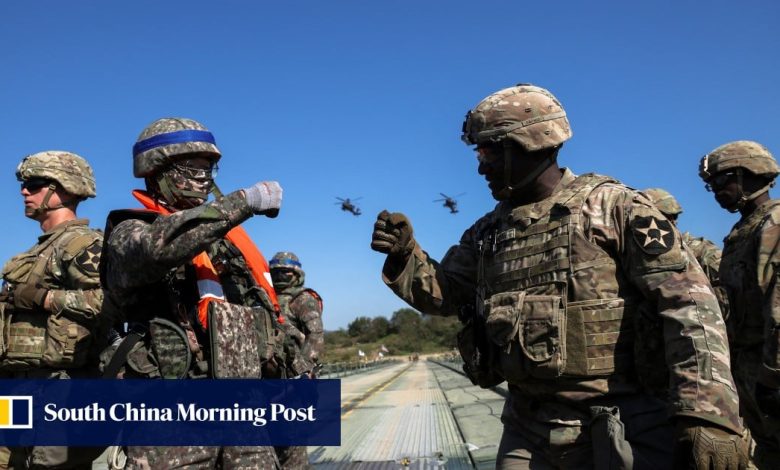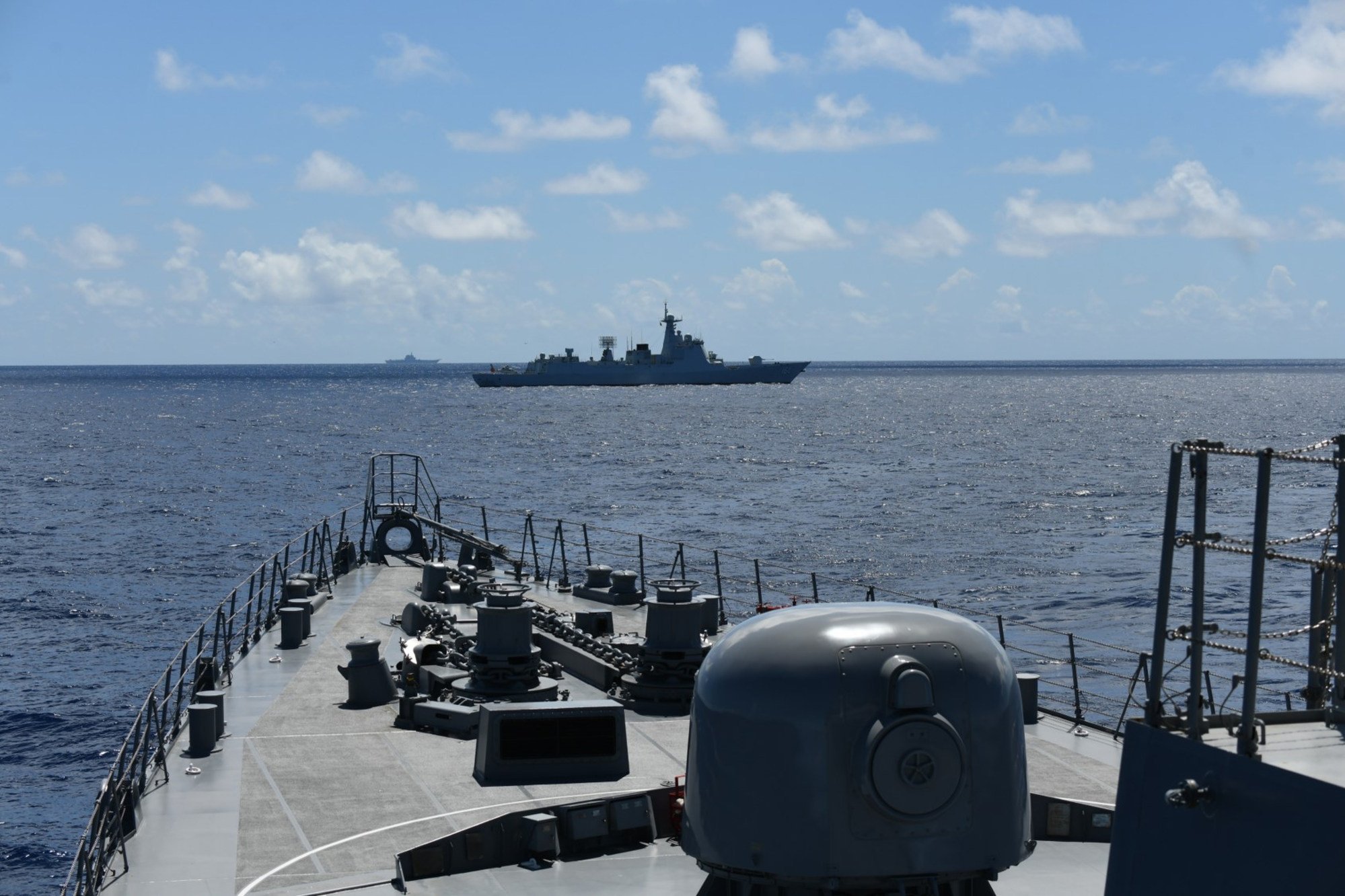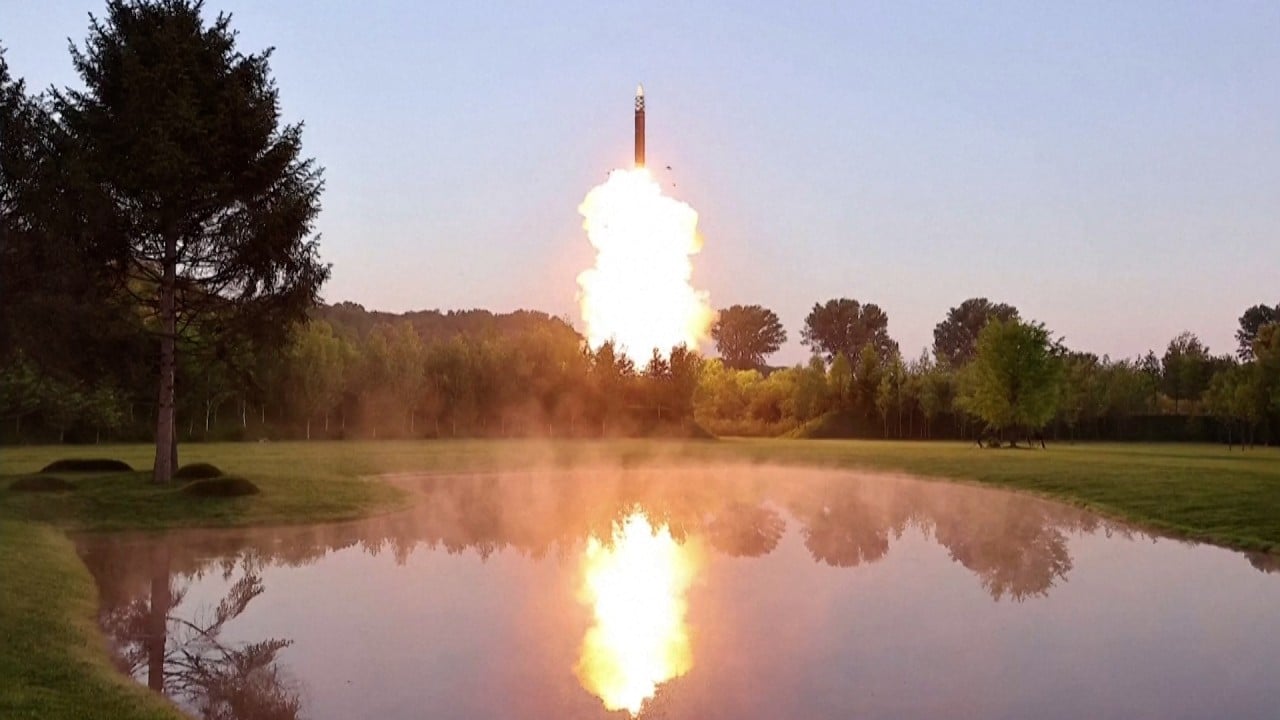Exclusive | South Korea opposition aims to stop military’s Taiwan entanglement

“This law bill aims to prevent the South Korean military from being dragged into such an eventuality and make it focus on its original mission to defend the South from the North’s threats,” Kim said.

The bill would have a good chance of being passed by the National Assembly where the two main opposition parties have 187 seats in the 300-seat parliament, Yang added.
When asked by Kim whether South Korea would intervene militarily in a conflict over Taiwan in parliament on Wednesday, Foreign Minister Cho Tae-yul flatly said: “No”.
“The US troops stationing in South Korea are supposed to focus on the Korean peninsula issue”, Cho added.
Yang Uk, a senior researcher at the Asan Institute for Policy Studies, said South Korea is “too preoccupied with coping with the North to project its strength beyond the Korean peninsula”.
“But it would have no alternatives but to fight alongside the United States if China attacks the United States … as the United States would do the same if the North attacks the South”, he told This Week in Asia.
He also said it would not make sense to dispatch American troops stationed in the South to overseas contingencies such as Taiwan as their heavy weapons were not suitable for rapid overseas deployment.
General Charles Flynn, commander of the US Army Pacific, said on Channel-A TV in April in Seoul that he would welcome South Korea projecting its strength out in the region to help the alliance “because it’s an important message”.
He said it would be “great” if the South, Japan and the US train together in Hawaii or Alaska could overcome some of the challenges, adding that the US can “help bring the trilateral [alliance] together”.
In a separate interview with the Stars and Stripes newspaper in May, Flynn said Chinese military expansion was pushing Asian nations into closer strategic partnerships with the US, similar to Nato in Europe.
But military cooperation between Pacific nations would take time to integrate in a way comparable to Nato, Flynn added.
The US Army Pacific has 107,000 soldiers and civilian workers stationed across 9,000 miles from Alaska, Guam, American Samoa, Saipan, Japan to South Korea.
South Korean Defence Minister Shin Won-sik has also downplayed the possibility of the South Korean military being involved in an emergency over Taiwan, stating that its focus was on the Korean peninsula.
“We believe that protecting the security of our country amounts to protecting the international security and it is right for us to focus on that”, Shin said on KBS TV in April.

A crisis over Taiwan would increase the likelihood of North Korea committing provocative acts or starting an aggression, he said.
“Upholding the security of the Republic of Korea [South Korea] is upholding global security, and that is where our focus lies”, he said.
Adam Liff, a senior researcher at the Centre for Asia Policy Studies, said Seoul appeared to “remain more reluctant than Tokyo to publicly engage Taiwan on a bilateral – even if unofficial – basis, or to openly express support for Taiwan’s ‘international space’”.
Despite the Biden administration’s concerted efforts to mobilise allies, the situation in the Taiwan Strait has, understandably, not traditionally been a major focus of attention for South Korea which for more than 70 years has had to stare down an existential threat from North Korea, he said.
“Past US efforts to initiate a more robust discussion on the US-ROK [South Korea] alliance’s possible role in the event of a regional contingency have not made much headway”, he wrote on the Brookings website in February.
“This fear appears particularly pronounced when ROK counterparts contemplate the possibility that the United States may wish to deploy its forward-deployed forces in Korea to support Taiwan,” he added.






